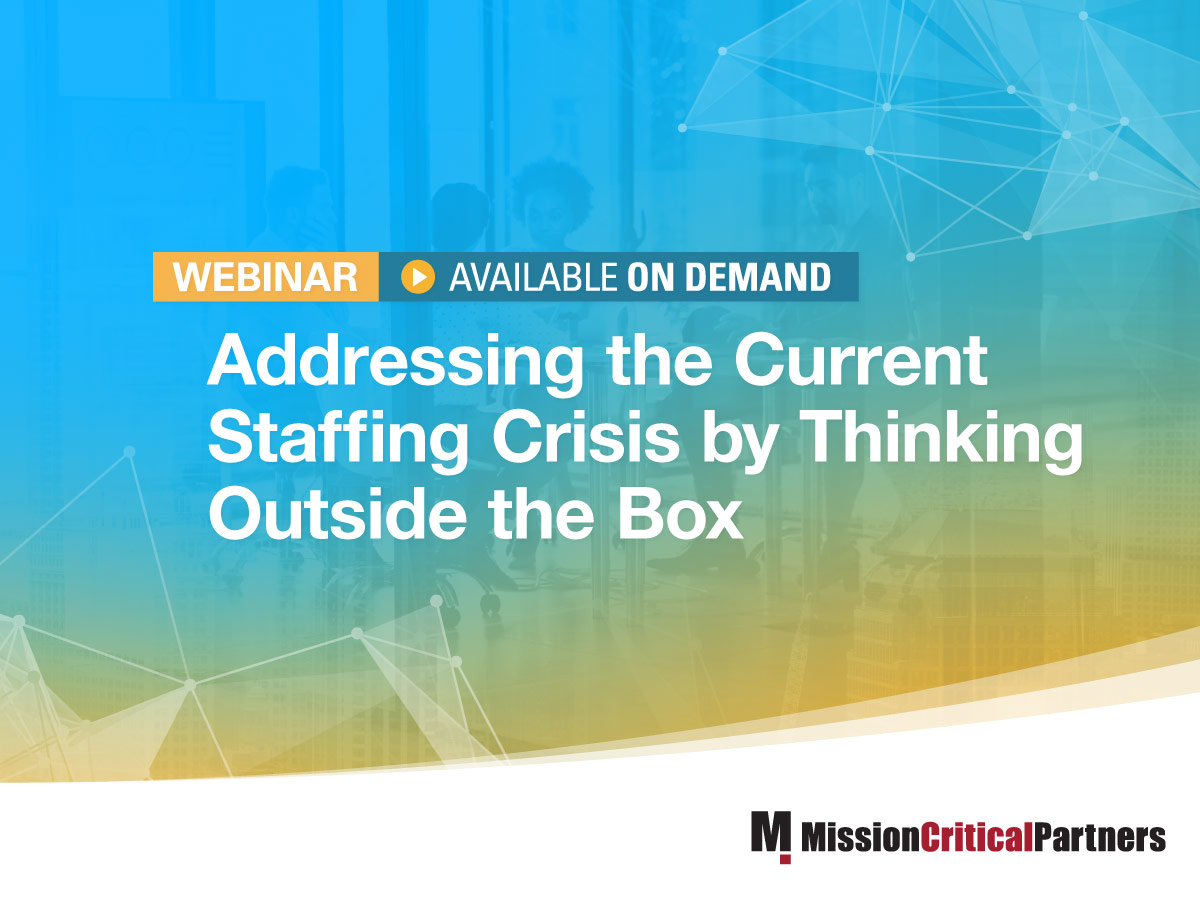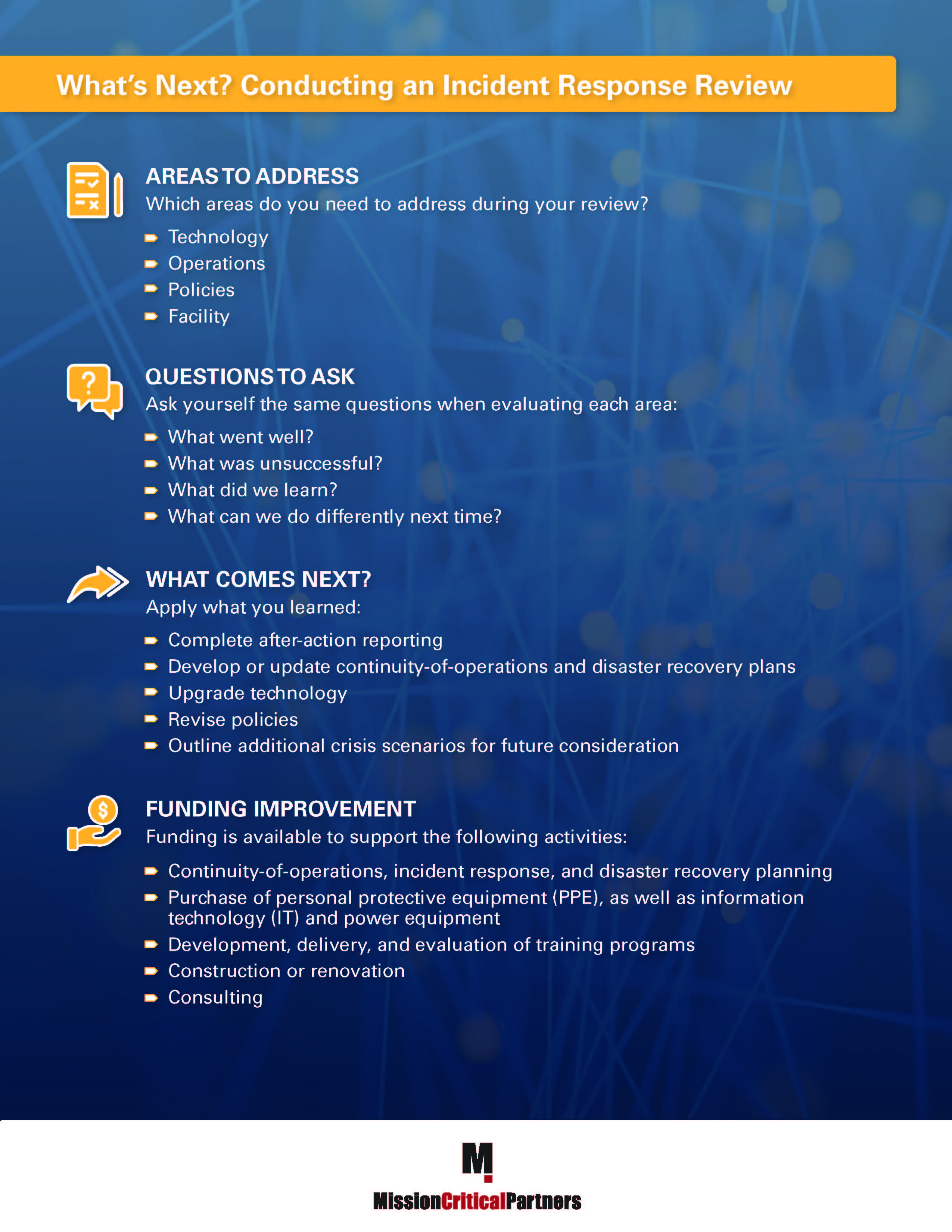On-Demand Webinar: Maximizing Public Safety — Exploring IPAWS and Outdoor Warning Systems
In this on-demand webinar, Mission Critical Partners experts Brian Malinich, Corey Thomas, and Gordon Vanauken explore the critical role that outdoor warning systems and IPAWS play in public safety and emergency response.






